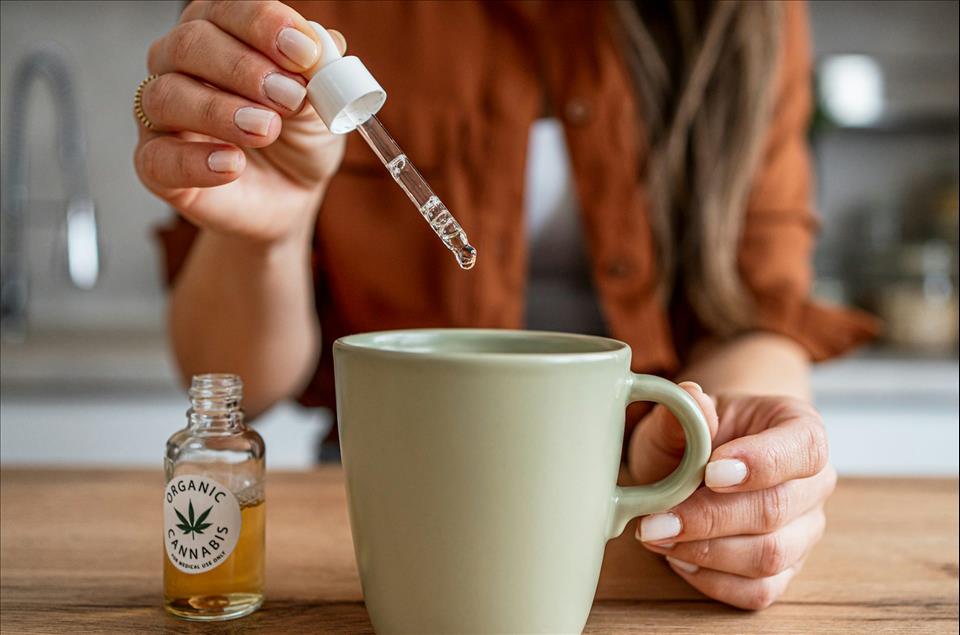
Medicinal Cannabis Concerns Include Psychosis And Child Poisonings. We're Not The Only Ones Worried
After a Freedom of Information request, the Therapeutic Goods Administration (TGA) told the ABC there had been reports of 615 side effects (known officially as adverse events) in three years to June 2025. These included more than 50 reports of psychosis, and 14 of suicidal thoughts and behaviour.
Most people don't report adverse events to the TGA, so these numbers are likely a gross underestimate.
Earlier this year, we published research charting the rise in calls to Australia's largest poisons information centre about cannabis poisoning in the years after medicinal cannabis was legalised. This included a rise in accidental poisoning in children.
Here's what we know about the risks linked to these unapproved products.
Why medicinal cannabis is uniqueAll medicines come with a risk of adverse events. Cannabis medicines are no different.
What is unique is that the vast majority of medicinal cannabis use in Australia involves unapproved products . These are ones the TGA has not assessed for quality, safety or effectiveness – but are still legally available.
More than 1,000 unapproved medicinal cannabis products are available in Australia. People often take these for conditions where we have no strong evidence they work .
This is in contrast to the two“approved” medicinal cannabis products, whose manufacturers or suppliers have to provide such evidence.
Read more: Medicinal cannabis is most often prescribed for pain, anxiety and sleep. Here's what the evidence says
The rise of medicinal cannabisMedicinal cannabis was legalised in Australia in 2016. But use really took off in 2021 , when the TGA changed how people could access the unapproved products.
Use in young men has been increasing the fastest . Generally, about one-third of use is for anxiety.
This is despite TGA guidance stating medicinal cannabis containing THC (tetrahydrocannabinol) is generally not appropriate for patients who“have a previous psychotic or concurrent active mood or anxiety disorder”.
What are the risks?Concerns about cannabis (both recreational and medicinal) and mental illness are not new . And liberalisation of cannabis policy worldwide is renewing these concerns.
For instance, a large Canadian study found schizophrenia associated with cannabis use almost tripled following cannabis legalisation reforms.
Cases of first-time psychosis associated with medicinal cannabis have also been reported in Australia .
There have been large increases in emergency department presentations for anxiety disorder involving cannabis in Canada. However, it is unclear whether this reflects more people using cannabis to manage anxiety, or whether cannabis use played a role in developing anxiety disorders. And not all of these presentations involved medicinal cannabis.
The potential for drug interactions with medicinal cannabis is often under-appreciated. For example, one common component, cannabidiol, interacts with a range of commonly used medicines. These include epilepsy medicines, antidepressants, opioids and blood thinners.
How about in Australia?Reports of adverse events after taking a medicine have their limitations. Just because someone reports an adverse event this doesn't necessarily mean the medicine caused it.
Existing reporting mechanisms are also not designed to monitor broader drug-related harms. These include illicit use, misuse and accidental child poisonings.
But other datasets can fill these gaps. For example, earlier this year we published a paper about trends in calls about cannabis (medicinal and recreational) to Australia's largest poisons centre.
We showed calls about cannabis poisoning have been increasing. Poisonings after taking concentrated products (for instance, cannabis oils) and edibles have become much more common.
Unintentional poisonings have increased the most rapidly. This category includes dosing errors from medicinal cannabis, unwanted side effects, and accidental exposures in children.
This risk to children is often ignored in conversations about cannabis safety. Children exposed to cannabis can end up in a coma or having seizures , and often need intensive care .
Confectionary and foods containing cannabis pose an unacceptable risk to children. They are tasty, look like regular foods, and often contain high concentrations of cannabis. These have been implicated in rapidly rising numbers of poisonings in children in many countries, especially since cannabis has become more widely available.
Calls for more oversightThe Australian Health Practitioner Regulation Agency has put practitioners on notice over questionable prescribing of medicinal cannabis.
There has been a surge in“single-purpose dispensaries” whose whole business model relies on supplying medicinal cannabis via telehealth . Some consultations last mere seconds.
Prescribing data reveals eight practitioners wrote more than 10,000 medicinal cannabis scripts in a six-month period.
Best practice would involve new cannabis medicines being prescribed only by a person's usual GP or specialist. This would typically require considerable time to advise on risks and benefits, and assess for drug interactions, or contraindications (where use is advised against), such as if someone has a history of psychiatric illness or substance use.
The TGA is currently consulting on whether the current regulatory processes around access to unapproved medicinal cannabis products is appropriate. This review may signal future changes to this blockbuster industry.
What are some practical things I can do?For now, anyone considering medicinal cannabis should talk to their regular GP or specialist. This should involve a thorough assessment, including considering your medical history and current medications.
Ask about the risks and benefits of medicinal cannabis, and whether there is evidence it works for your condition.
If you are prescribed medicinal cannabis, keep it out of reach and out of sight of young children.
If this article has raised issues for you, or if you're concerned about someone you know, call Lifeline on 13 11 14.

Legal Disclaimer:
MENAFN provides the
information “as is” without warranty of any kind. We do not accept
any responsibility or liability for the accuracy, content, images,
videos, licenses, completeness, legality, or reliability of the information
contained in this article. If you have any complaints or copyright
issues related to this article, kindly contact the provider above.


















Comments
No comment